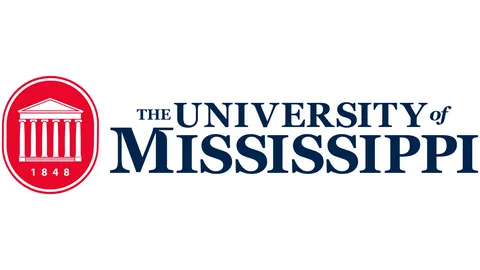Introduction
The United States is a global hub for higher education, attracting thousands of international students each year. Renowned for its prestigious universities, diverse cultural environment, and advanced research facilities, studying in the U.S. can be a transformative experience. However, the cost of education can be a significant barrier for many aspiring scholars. To make this dream more accessible, the U.S. government offers a range of scholarships and awards specifically designed for international students.
This blog post will provide a comprehensive guide to the top U.S. government scholarships available to foreign students. We will explore their benefits, eligibility criteria, application processes, and tips for securing these opportunities. Whether you’re aiming for undergraduate, graduate, or doctoral studies, this guide will help you navigate the scholarship landscape and bring you closer to studying in the United States.
1. Why Pursue Government Scholarships in the USA?
1.1 The Appeal of U.S. Education
The United States hosts some of the world’s best universities, offering diverse programs and cutting-edge research opportunities. International students are drawn to the U.S. not only for its academic excellence but also for the chance to network with professionals from various fields and gain a global perspective. However, tuition fees and living costs can be high, making scholarships a vital resource.
1.2 What Are Government Scholarships?
Government scholarships are financial aids provided directly by the federal or state government of a country. For international students, U.S. government scholarships are designed to support education, promote cultural exchange, and encourage academic collaboration between the U.S. and other countries. These scholarships often cover tuition fees, living expenses, travel costs, and even health insurance.
2. Types of USA Government Scholarships for Foreign Students
There are several types of scholarships funded by the U.S. government, each with different eligibility criteria and benefits. Here are some of the most notable programs:
2.1 Fulbright Foreign Student Program
The Fulbright Program is one of the most well-known scholarship programs worldwide, aimed at fostering mutual understanding between the U.S. and other countries. It offers opportunities for graduate students, young professionals, and artists from over 140 countries to study and conduct research in the United States.
- Eligibility: Applicants must have completed undergraduate education and be proficient in English. Specific eligibility criteria may vary by country.
- Benefits: Full tuition, living stipend, health insurance, and airfare.
- Application Process: Applications are submitted through U.S. embassies or Fulbright commissions in the applicant’s home country. The process involves a detailed application form, personal statement, academic transcripts, letters of recommendation, and an interview.
2.2 Hubert H. Humphrey Fellowship Program
The Humphrey Fellowship is a non-degree program that brings experienced professionals from developing countries to the U.S. for a year of professional enrichment, academic study, and cultural exchange. It’s ideal for mid-career professionals seeking to enhance their leadership skills.
- Eligibility: Candidates must have a minimum of five years of professional experience, be proficient in English, and demonstrate leadership potential.
- Benefits: Coverage includes tuition, living expenses, travel, and a professional development allowance.
- Application Process: Applications are managed by U.S. embassies or Fulbright commissions. Candidates must submit detailed professional achievements, academic records, and a statement of purpose.
2.3 Foreign Fulbright English Teaching Assistant (ETA) Program
The Fulbright ETA places recent graduates and young professionals in schools or universities abroad to teach English. This program promotes cultural exchange by allowing participants to learn about the host country’s culture while teaching English.
- Eligibility: Applicants must be fluent English speakers and hold at least a bachelor’s degree.
- Benefits: Monthly stipend, housing allowance, health insurance, and airfare.
- Application Process: Candidates apply through the Fulbright website and must submit essays, academic transcripts, and references.
3. Understanding Key Terminologies in Scholarships
3.1 What is a Stipend?
A stipend is a fixed sum of money provided regularly to cover living expenses. Unlike a salary, a stipend is not subject to traditional income tax rates because it is typically not earned income but financial support.
3.2 What Are Letters of Recommendation?
Letters of recommendation are written by professionals or educators who can vouch for your skills, achievements, and character. They are an essential part of most scholarship applications and can significantly impact your chances of success.
4. Benefits of U.S. Government Scholarships for International Students
4.1 Financial Support
Most government scholarships cover full tuition, living expenses, travel costs, and health insurance. This means that you can focus entirely on your studies without worrying about financial constraints.
4.2 Networking Opportunities
Scholarships like the Fulbright Program offer unparalleled networking opportunities. Scholars have access to alumni networks, conferences, and events that help them build professional connections and enhance career prospects.
4.3 Cultural Exchange
U.S. government scholarships emphasize cultural exchange. Scholars engage in activities that allow them to share their culture and learn about American culture, fostering mutual understanding and global cooperation.
5. How to Apply for U.S. Government Scholarships: A Step-by-Step Guide
5.1 Research Scholarship Programs
Begin by identifying which scholarship programs align with your field of study and career goals. Check the eligibility criteria carefully to ensure you meet all requirements.
5.2 Prepare Your Documents
Most scholarship applications will require:
- Academic Transcripts: Proof of your educational achievements.
- Personal Statement/Essays: Highlight your motivations, goals, and why you deserve the scholarship.
- Letters of Recommendation: Secure letters from people who can speak to your abilities and potential.
- English Proficiency Test Scores: Exams like TOEFL or IELTS may be required.
5.3 Submit the Application
Applications are typically submitted online, though some programs may have additional steps such as interviews or in-person submissions at U.S. embassies. Make sure to follow all guidelines, double-check your documents, and submit before the deadline.
6. Tips for a Successful Application
6.1 Start Early
Scholarship applications can be time-consuming. Start early to give yourself ample time to prepare your documents, write essays, and gather letters of recommendation.
6.2 Tailor Your Personal Statement
Your personal statement should reflect your passion for your field of study, your career aspirations, and how the scholarship will help you achieve your goals. Be specific about what you want to accomplish.
6.3 Seek Guidance
Reach out to past scholarship recipients, educators, or career counselors for guidance. They can offer valuable insights and tips to strengthen your application.
7. Common Challenges Faced by International Students
7.1 Navigating Visa Processes
Once you secure a scholarship, you will need a student visa to study in the U.S. Government scholarships often come with assistance in obtaining the necessary visa, but it’s essential to familiarize yourself with the process and requirements.
7.2 Adjusting to a New Culture
Moving to a new country can be a cultural shock. U.S. government scholarships often include orientation programs to help students adjust, but being proactive in learning about American culture can make the transition smoother.
8. Conclusion
Studying in the United States opens up a world of opportunities, and U.S. government scholarships make this dream achievable for many international students. Programs like the Fulbright and Humphrey Fellowships not only provide financial support but also facilitate cultural exchange and professional development. By understanding the eligibility criteria, application process, and benefits, you can take the first step toward advancing your education and career in the U.S.
With determination, thorough preparation, and the right resources, you can enhance your chances of winning a government scholarship and embark on a transformative educational journey. Start your research today, and take the leap toward a brighter future.
Call to Action
If you’re ready to begin your scholarship journey, visit the official websites of the programs mentioned above, and start preparing your application. Remember, the opportunity to study in the United States is just a few steps away, and a government scholarship can be your ticket to success!




